Introduction
Financial wellness is a multifaceted concept that goes beyond the accumulation of wealth or the absence of debt. It involves finding a balance between saving and spending, managing everyday finances, and being prepared for unexpected expenses. Achieving financial wellness also means setting and achieving financial objectives that contribute to a broader sense of life satisfaction and well-being.
This article explores the key elements of financial wellness, including control over day-to-day and month-to-month finances, the capacity to absorb a financial shock, being on track to meet financial goals, having the financial freedom to make choices, budgeting and expense management, savings and emergency funds, debt management, investing for the future, financial literacy and education, insurance and risk management, retirement planning, estate planning, and the importance of financial wellness.
By taking a proactive and strategic approach to financial management, individuals and organizations can establish a solid foundation for lasting financial wellness. This article provides practical advice and insights to help CFOs and their teams navigate the complexities of financial wellness and achieve stability and growth.
Definition of Financial Wellness
Financial wellness is a multifaceted concept, not just the absence of debt or the accumulation of wealth. It's about striking a balance between saving and spending, managing everyday finances, and being prepared for unforeseen expenses. Furthermore, it's about establishing and attaining objectives that contribute to a broader sense of life satisfaction and well-being.
A comprehensive outlook on monetary well-being must take into account the interdependence of economic decisions and life quality. It's important, as emphasized by insights from economic advisors, that possessing substantial funds doesn't always correspond with the readiness to invest in one's personal or family's standard of living. There's a fine line between prudent saving and missing out on life-enhancing experiences. Likewise, the balance between generosity and creating dependency is delicate, as evidenced by the pitfalls of supporting adult children financially without accountability.
Furthermore, partnerships like the one between Cisco and OECD on WISE serve to underline the importance of well-being in the digital age. The initiative aims to foster a responsible relationship with technology, acknowledging both its benefits and risks to mental health and safety.
In a rapidly advancing world, where generative AI is augmenting the role of advisors, there's a clear preference for a human touch. The majority of Canadians surveyed by Intuit prefer a hybrid approach, where technology supports but does not replace the expertise and judgment of a human advisor.
In the end, attaining economic well-being is not solely focused on figures; it's about the tranquility that arises from possessing a dependable mechanism to handle money matters, the ability to anticipate and minimize risks, and the sagacity to savor life's voyage. As we navigate our monetary path, we might do well to remember that life's greatest risks aren't necessarily found in the stock market but in the choices we make every day.
The Four Key Elements of Financial Wellness
To attain fiscal well-being, a comprehensive methodology is necessary, one that encompasses the entirety of an individual's or entity's monetary condition. This involves a meticulous assessment of four critical pillars: Assets, Liabilities, Income, and Expenses (ALIE). These components work together to depict a vivid image of economic well-being. Assets, both liquid and real such as properties, represent the resources available. Liabilities, including loans and their terms, highlight what is owed. Income streams offer insight into the earning potential, while expenses delineate the outflow of funds.
Economic well-being goes beyond mere numbers, touching upon the psychological aspects of monetary decision-making. Emotional intelligence regarding money affects how one perceives and values wealth and spending habits. Moreover, the capacity to distinguish between advantageous debts, like mortgages, and harmful ones, such as payday loans, is vital for preserving a sound economic portfolio.
In the current economic climate, where a significant portion of the workforce is struggling due to the effects of inflation and market volatility, there's an evident increase in stress related to money. An astonishing 72% of employees report increased monetary stress, with many restraining their spending and accessing savings, emphasizing the significance of strong economic planning for personal fiscal well-being.
Furthermore, the recent change in the view of emergency funds, driven by the pandemic's economic impact, implies that the existing standard of six months' worth of expenses may no longer be adequate. This alteration emphasizes the necessity for more durable safety nets, preventing dependence on high-interest debt and protecting long-term monetary goals.
Contemporary institutions in the banking sector, such as Commerce Bank, have acknowledged the changing landscape and are integrating advanced banking products with personalized customer service to forge stronger relationships and address monetary well-being. This approach, along with strategic initiatives targeting specific customer segments, indicates an industry-wide move towards more customized health strategies.
A comprehensive plan, therefore, must start with a solid understanding of one's ALIE, adapt to future needs such as retirement or healthcare, and ensure readiness for unexpected hurdles. By addressing these aspects, individuals and organizations can establish a foundation for enduring wellness.
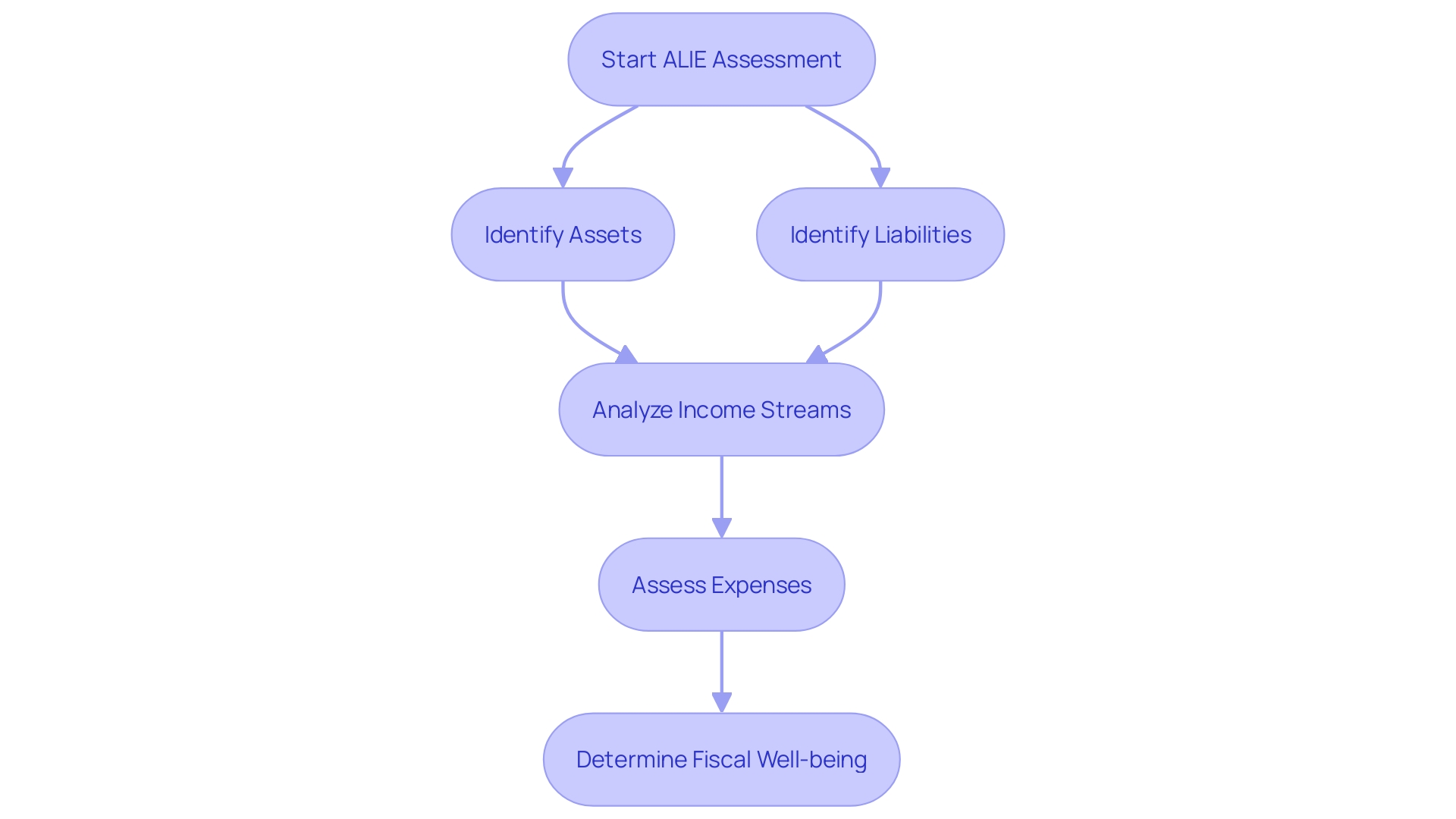
Control Over Day-to-Day and Month-to-Month Finances
Effective money management is not just about meeting immediate needs; it's about strategic planning for both the short and long term. A well-structured approach to managing your finances includes creating a detailed list of income and expenses, which forms the foundation for a robust personal budget. By meticulously tracking where your money goes each month, especially in relation to debt repayment, you can gain a clearer perspective on your spending habits and identify areas for improvement.
The recent economic landscape has highlighted the necessity for such careful planning. Reports from money managers emphasize the heightened importance of maintaining an adequate emergency fund, one that extends beyond the previously recommended six months of expenses. This shift is a direct response to lessons learned during the pandemic, where unexpected job losses and salary reductions made it clear that a more substantial safety net is necessary.
Furthermore, to ensure that your monetary plan remains resilient against economic fluctuations, it's advisable to consider ways to 'recession-proof' your savings. This involves reassessing your spending patterns and aligning them with your values and long-term objectives. Are the increases in your cost of living justifiable, or can they be mitigated? Have there been life events that require a strategy update? Considering these questions can result in more educated choices that enhance your economic well-being.
Aside from the practical measures of budgeting and emergency planning, it's also crucial to assess your monetary behaviors against broader trends. For instance, industry statistics reveal that certain sectors, like wholesale and retail trade, have experienced substantial growth in earnings. Such insights can inform your decisions about where to allocate resources and how to adjust your plan in light of economic shifts.
Advisors stress the significance of balancing life's pleasures with prudence in managing money, proposing that enhancing life well-being can be accomplished without compromising fiscal security. It's a delicate balance of managing your resources to ensure that spending and saving habits support your overall well-being — now and in the future.
Implementing these strategies necessitates a mindful approach to economic well-being, one that takes into account the unpredictability of life events and the inevitable changes in the economic environment. By embracing a methodical and introspective approach to money management, you can guarantee that you're not only fulfilling your daily and monthly responsibilities but also setting yourself up for long-term fiscal well-being.
Capacity to Absorb a Financial Shock
Having the strength to weather monetary turbulence is akin to having a life raft in the midst of a storm. This resilience is not just about having an emergency fund on standby, but also about ensuring there are reliable resources at your disposal to cover unforeseen costs. This readiness prevents economic hardship and avoids the necessity of relying on borrowing.
Establishing a cushion starts with a thorough evaluation of your income in relation to your expenses, considering the repayment of any outstanding obligations. It's essential to have this budgeting exercise documented to gain clarity on your spending habits. From here, prioritizing debt reduction, particularly unsecured debt like loans and credit card balances, becomes a concrete goal.
Emergencies are unpredictable, yet inevitable. Ashlee Walton, a Certified Financial Planner at James Investment Research, explains, "An emergency fund is simply money that's put aside, readily available for unexpected expenses such as vehicle repairs, home appliance breakdowns, or to cover living costs during unforeseen loss of income or health issues."
Moreover, the IRS urges taxpayers to safeguard important monetary records as part of disaster preparedness. This includes storing critical documents like tax returns and birth certificates in waterproof containers and having digital copies stored securely.
The trend towards workplace emergency savings accounts (ESAs) reflects the growing recognition of the necessity for shock absorbers. These ESAs, which often include automatic enrollment and payroll deduction, provide a cushion against shocks, reducing the risk of hardship.
The economic landscape is not static, as evidenced by the Senior Loan Officer Opinion Survey indicating shifts in lending practices. It emphasizes the need for vigilance and adaptability in planning. By incorporating these strategic insights, you can strengthen your company's fiscal strength to withstand the unexpected.
On Track to Meet Financial Goals
Economic wellness is not just about having enough money to meet your needs, it's also about setting and reaching monetary goals that align with your business's long-term vision. Whether these goals involve expanding your service offerings, enhancing digital customer experiences, or investing in a modern core banking platform like Commerce Bank, setting realistic and measurable targets is crucial. Commerce Bank's approach to integrating sophisticated banking products with a high-touch, high-tech delivery system illustrates the importance of innovation in achieving business targets.
To successfully navigate the competitive and ever-evolving business landscape, it's essential to regularly monitor your progress. For instance, South Korea's Jeju Dream Tower, a marvel of modern architecture and the largest Hyatt hotel in Asia Pacific, required advanced technology to manage its extensive operations effectively. The careful planning and implementation of this technology emphasize the importance of ongoing review and adaptation in meeting objectives.
Moreover, aligning your monetary strategies with forward-looking statements, similar to those made by AstraZeneca, can help anticipate and prepare for future challenges and opportunities. This forward-thinking approach involves grasping the risks and uncertainties that may impact your economic condition and adjusting your strategies accordingly.
To stay on track, it's wise to review your budget regularly, cutting out unnecessary expenses. Utilize your statements to distinguish between necessary and non-necessary expenses, and make sure your earnings surpass your outflows, leaving space for savings and repayment of liabilities. Moreover, tackling high-interest debts like credit card balances can be more beneficial in the short term than investing in lower-yielding assets.
Ultimately, the wellness of your business is about making informed decisions that support the growth and stability, reflecting your values and priorities while adapting to the dynamic market environment.
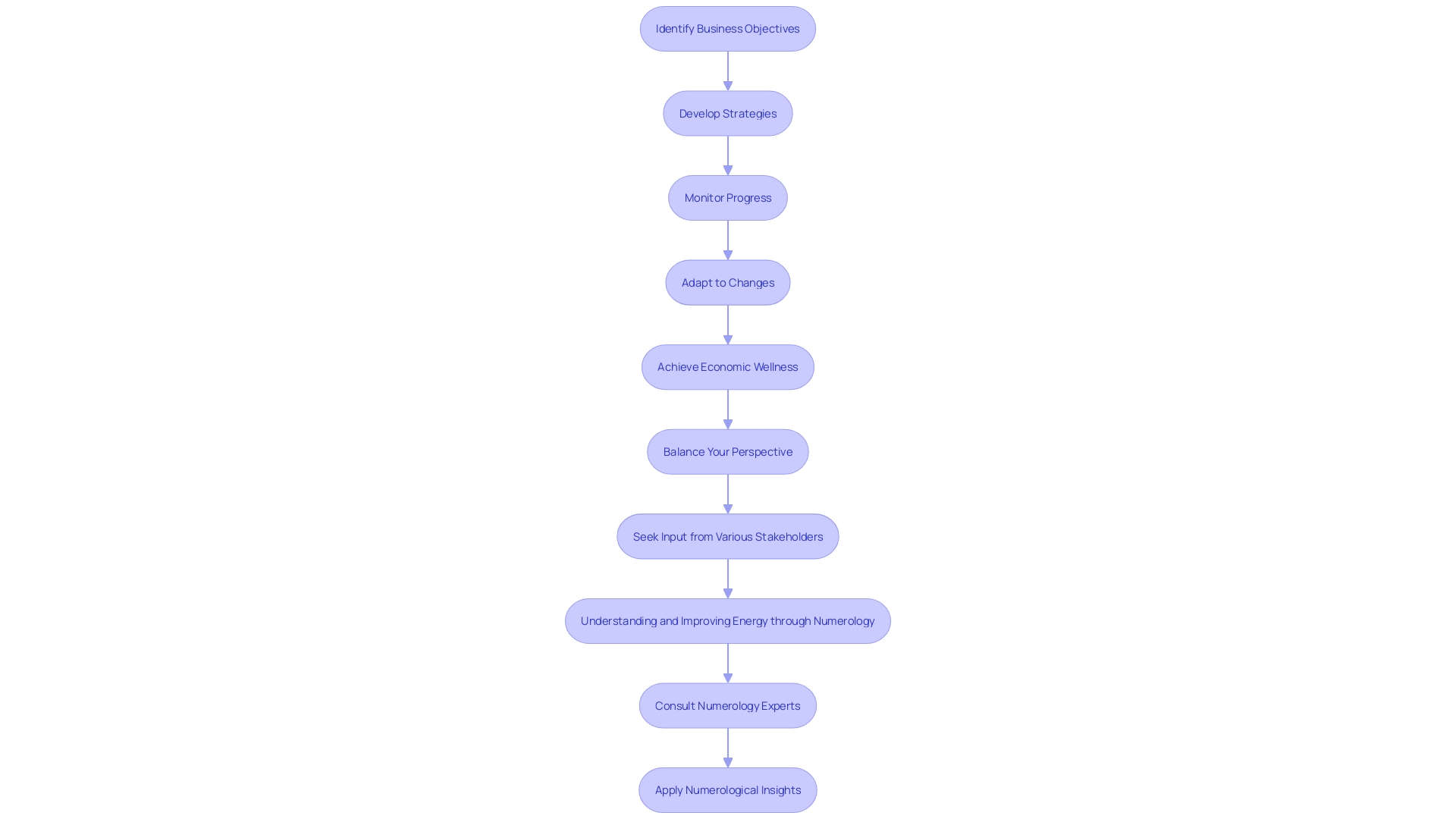
Financial Freedom to Make Choices
A comprehensive monetary well-being examination for your business begins with a deep dive into the market trends and customer needs. One fundamental aspect is the development of a detailed business plan that outlines your unique selling points, risk and market analysis, and comprehensive monetary strategies. This plan should include potential financing options, such as bank loans, while carefully considering the ability to repay and the total cost of borrowing.
For instance, the decision to finance a business with a loan from Sh800,000 to Sh1 million must be weighed against the company's repayment capabilities. It's imperative to consider not just the principal sum but also the interest over the loan period.
In recent times, the conventional wisdom of maintaining an emergency fund to cover six months of expenses has been challenged. Planners in the finance industry now recommend a stronger safety net, as demonstrated by the pandemic's effect on our economic security. Having a sufficient emergency fund is crucial for handling unexpected financial challenges without accruing excessive interest obligations, thereby protecting your long-term financial goals.
It's also important to address credit card obligations directly. With Americans' credit card debt exceeding $1 trillion and nearly half carrying balances month-to-month, this type of high-interest debt can significantly hinder progress towards crucial milestones like homeownership or retirement.
As you evaluate your monetary well-being, contemplate the psychological aspects that influence your economic behaviors. Early experiences and parental influence can shape whether you're a conservative investor or an aggressive one, a spender or a saver.
In terms of assets, data reveals a worrying trend of 'hand-to-mouth' households, characterized by immediate consumption and minimal savings. This emphasizes the crucial requirement for strategies that prioritize building liquid assets to enhance security and freedom.
Integrate these insights into your business's fiscal health checks and wellness strategies to guarantee a foundation that supports growth, opportunity, and strategic alignment with your long-term fiscal goals.
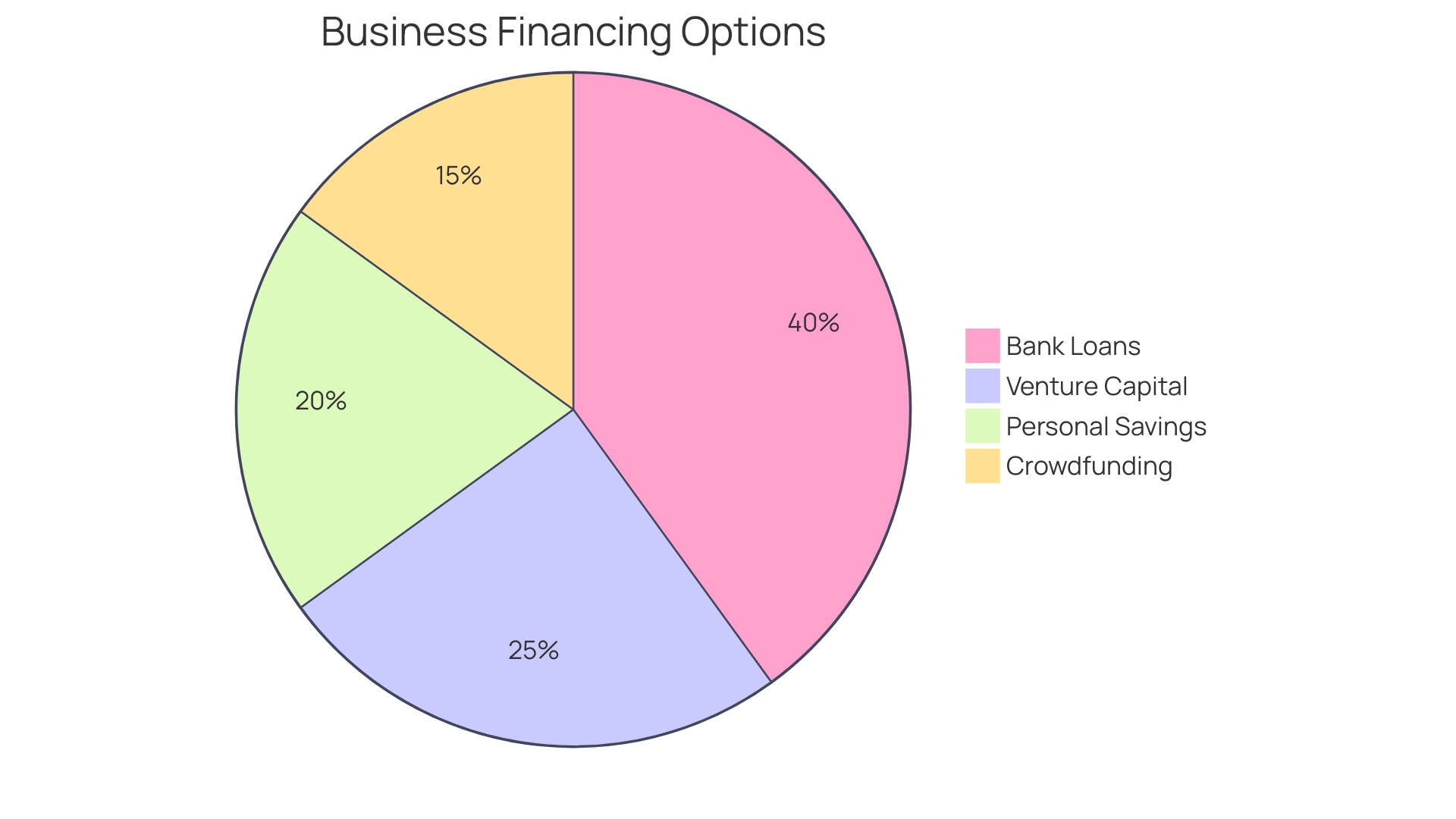
Key Areas of Financial Wellness
Achieving a strong economic condition involves more than just regular funds preservation; it demands a comprehensive approach that includes different aspects of fiscal well-being. Crucial to this is establishing attainable savings and investment goals based on your present economic circumstances. Reflect on your contributions to retirement accounts, like 401(k)s and IRAs, and consider how they align with your future lifestyle needs, potential healthcare costs, and additional income sources such as pensions or Social Security. Utilize tools like retirement calculators to refine your targets, ensuring they are neither too modest nor unattainably high.
To get a better understanding of your spending patterns, carefully document your earnings compared to your monthly outlays, including repayments. Many find themselves unaware of where their money goes after the obvious bills are paid. A written record of incomes, expenses, and debts is crucial in tracking and modifying spending behaviors to achieve economic well-being.
Moreover, unexpected life events and economic shifts can have a profound impact on your finances. Reflect on the past year and recognize any unexpected events, changes in expenses, or major life events that may impact your planning for the upcoming year. Assess whether your spending patterns align with your long-term goals and values, and if not, consider necessary adjustments.
One must also acknowledge that money knowledge plays a crucial role in economic stability. A substantial portion of Americans have a fundamental understanding of concepts like inflation, interest, and risk diversification, yet many still feel unprepared for the future. Improving economic education may promote smarter investment decisions and choices throughout an individual's lifetime.
Finally, keep in mind that monetary and life well-being are deeply interconnected. While it's essential to maintain a healthy savings habit, it's equally important not to overlook the value of investing in your life satisfaction through experiences and contributions to family and community. This well-rounded perspective on monetary well-being emphasizes the significance of enjoying the benefits of your fiscal prudence without jeopardizing future safety.
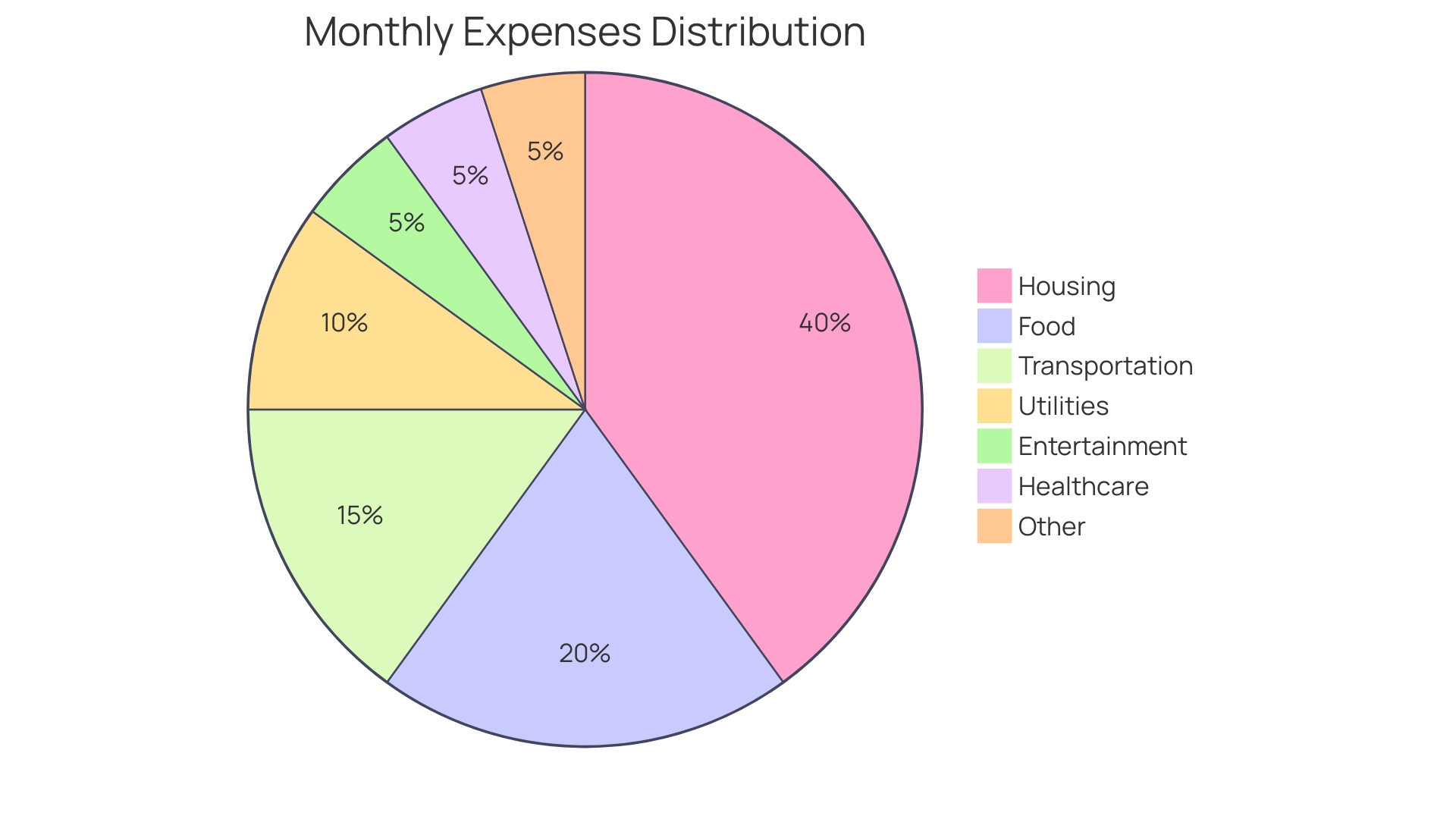
Budgeting and Expense Management
Mastering the art of budgeting and expense management is more than just a tactic; it's a strategic approach that ensures the health and longevity of an organization's standing. This foundational practice requires both accuracy and foresight, involving the development of a comprehensive budget that aligns with the organization's monetary objectives. By meticulously tracking expenses and conducting thorough analyses, it's possible to pinpoint areas ripe for optimization, ultimately streamlining costs without compromising the trajectory towards important monetary milestones.
In the hospitality sector, budgeting is elevated from a mere operational task to a pivotal element in securing a hotel's success. Traditional budgeting methods have often been labor-intensive, demanding extensive coordination among departments. Yet, modern advancements in budgeting software have revolutionized this process for hoteliers. By implementing these cutting-edge technologies, hotels can now simplify their annual planning, significantly reducing the resources previously required to craft an accurate budget.
Personal monetary wellness also mirrors these principles, as exemplified by individuals like Priyanka Prasad, who transitioned from a legal profession to entrepreneurship. With a disciplined savings strategy—rooted in a conservative approach to expenses—Priyanka has successfully created a cushion, enabling her to focus on her startup with peace of mind.
When it comes to event planning, the first step is crystallizing the goals and needs of the event to inform budgetary requirements. This clarity is crucial as it impacts the selection of venues and the allocation of funds across various categories—each tailored to the unique nature of the event. Whether it's a professional development workshop or a large-scale trade show, the venue must be chosen with prudence in mind.
The principle of consistent expense planning is equally applicable to one's retirement years. Adopting a minimalist lifestyle and making wise spending choices can ensure a consistent monetary path, avoiding the highs and lows often linked to unpredictable expenditure patterns. The key is to minimize overall spending, thereby leaving little room for unexpected monetary fluctuations.
Technological advancements extend beyond just budgeting software. Comprehensive money management apps now offer a suite of tools, including expense management, corporate cards, and invoicing. As organizations prepare for economic shifts, these apps provide invaluable resources to maintain stability. The recent introduction of new budgeting tools is a testament to the evolving needs of money management and the commitment to address them.
Municipal planning also shares these budgeting principles. City councils, for example, must meticulously classify and review capital projects to ensure that taxpayer funds are judiciously allocated and that every project aligns with long-term community objectives.
These strategies and tools collectively represent a path to economic well-being for both organizations and individuals. By embracing a strategic approach to budgeting and expense management, one can navigate the complexities of planning with confidence and precision, ensuring a stable and prosperous future.
Savings and Emergency Funds
Maintaining robust savings and an emergency fund is a cornerstone of fiscal wellness, allowing individuals and businesses to set aside funds for the unexpected while diminishing the need to incur debt during financial downturns. The peace of mind that comes with having a safety net is invaluable, especially when facing economic challenges. For example, during a recession or a job loss, having an emergency fund equivalent to several months' worth of expenses can be crucial. The size of this fund may vary depending on individual circumstances; a household with a single income earner and dependents might aim for a six-month reserve, while others in more flexible job roles could adjust their target accordingly based on the economy and personal monetary goals.
To optimize your finances, it's worth exploring high-yield accounts, which offer superior interest rates compared to the national average. These accounts, offered by top monetary establishments, are created with characteristics that incorporate FDIC protection and affordable charges, guaranteeing the security of the invested money and the increase of funds over a period. The recent shift towards workplace emergency accounts (ESAs) highlights the value in automatic via payroll deduction, a feature that simplifies the process of building reserves. Employers such as Starbucks and UPS have led the way in offering these programs, reaching millions of employees who appreciate the convenience and security they offer.
Moreover, the need for emergency solutions extends beyond conventional employment environments, with nontraditional workers expressing a significant requirement for tools to assist them in handling economic shocks. This preference is supported by data from Pew, which shows that a significant portion of these workers consider emergencies as a significant hindrance to retirement funds, highlighting the significance of having access to emergency funds.
Given the current economic climate, where many Americans feel financially worse off than in previous years, the focus remains on saving more, spending less, and settling outstanding obligations. Managing one's economic situation begins with a thorough evaluation of income and expenses, including a plan for debt repayment. This level of fiscal introspection allows for better planning and alignment of spending with personal values and long-term objectives.
To ensure economic readiness for the year ahead, it's crucial to reflect on unexpected events, cost-of-living changes, and any lifestyle adjustments that could impact financial planning. Evaluating these factors can assist in determining the required measures to uphold or enhance economic well-being. The path to economic health is an ongoing journey, but with the right tools and strategies, individuals and organizations can safeguard their finances against the unknown and achieve their financial aspirations.
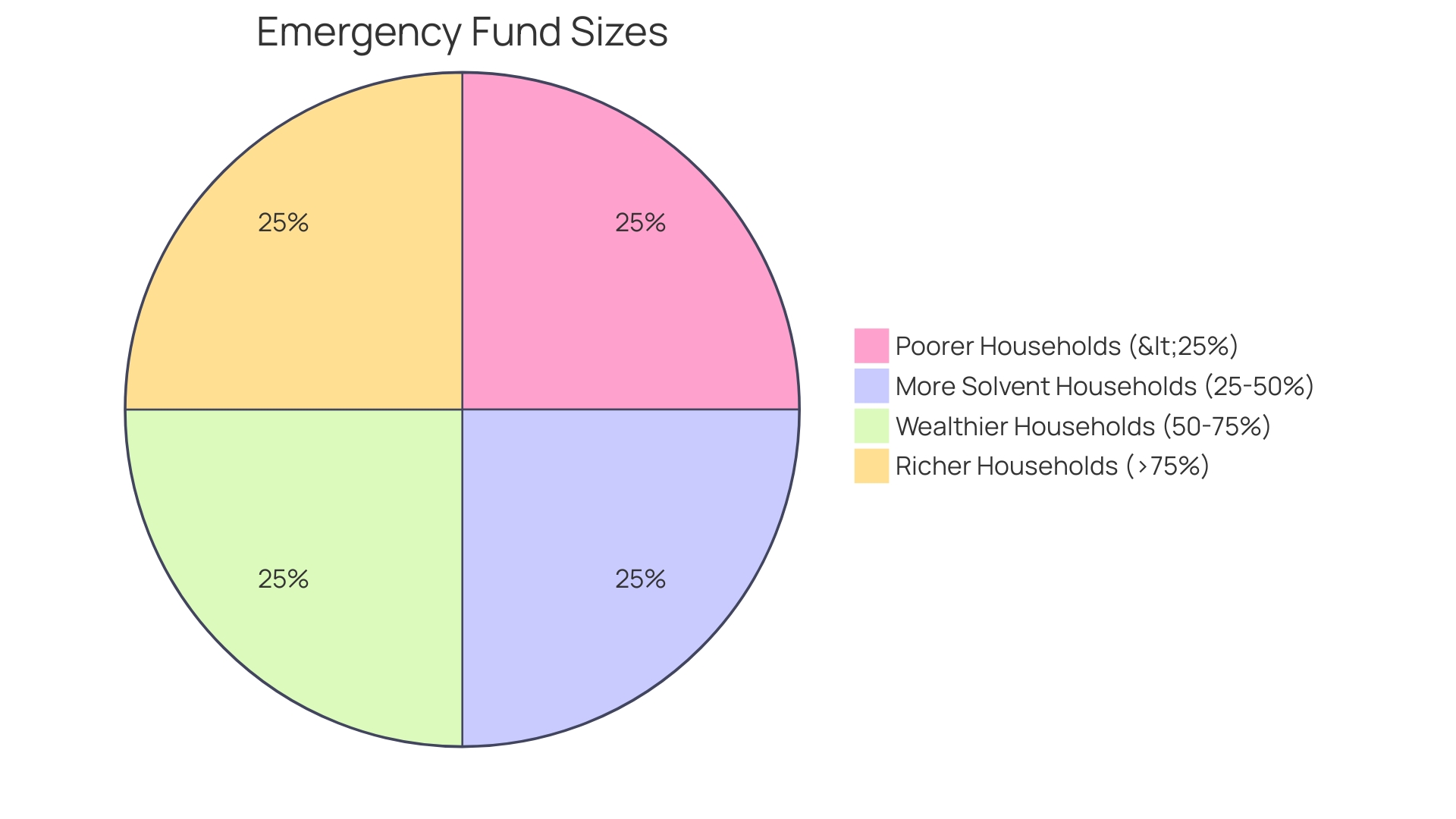
Debt Management
Understanding and managing the intricacies of fiscal responsibility is a key aspect of sustaining economic well-being. It's not just about paying off what you owe; it's also about making strategic decisions that align with your monetary objectives. For example, consolidation loans can be a smart move—combining multiple obligations into one loan to simplify monthly payments and potentially reduce costs. It's essential to understand that the utility of such loans varies, with options ranging from balance transfer cards to home equity or personal loans, each with its implications on your financial landscape.
Additionally, it's crucial to differentiate between 'positive' and 'negative' financial obligations. Positive liability has the potential to increase your net worth or add value over time, such as a mortgage for a home that appreciates. On the other hand, bad debt involves expenses on depreciating assets or those that do not yield future income or growth. Maintaining equilibrium between the two is crucial for your monetary well-being.
Another dimension to consider is the leverage used to acquire assets. As pointed out during the Global Financial Crisis, the level of borrowed money or leverage should correspond to the stability of the assets purchased. More stable assets may warrant higher leverage, while riskier ones should command less. This principle serves as a reminder of the delicate balance between leveraging opportunities and maintaining economic stability.
Credit cards, a widespread type of financial obligation, can greatly affect credit scores. They're easily accessible and can mirror our spending behaviors and money education. With the convenience of digital wallets, managing credit card spending has become more critical than ever.
In the context of economic downturns, like a recession, the repercussions of mismanagement of financial obligations can be magnified. Therefore, being knowledgeable about debt restructuring processes, the legal and monetary frameworks surrounding insolvency, and the consequences of various types of liabilities can equip businesses and individuals to navigate economic challenges effectively.
Remember, while forecasts and projections can guide decision-making, they are speculative by nature. It's crucial for businesses and individuals alike to remain adaptable, recognizing that actual results may differ from expectations due to the unpredictability of future events and market fluctuations.
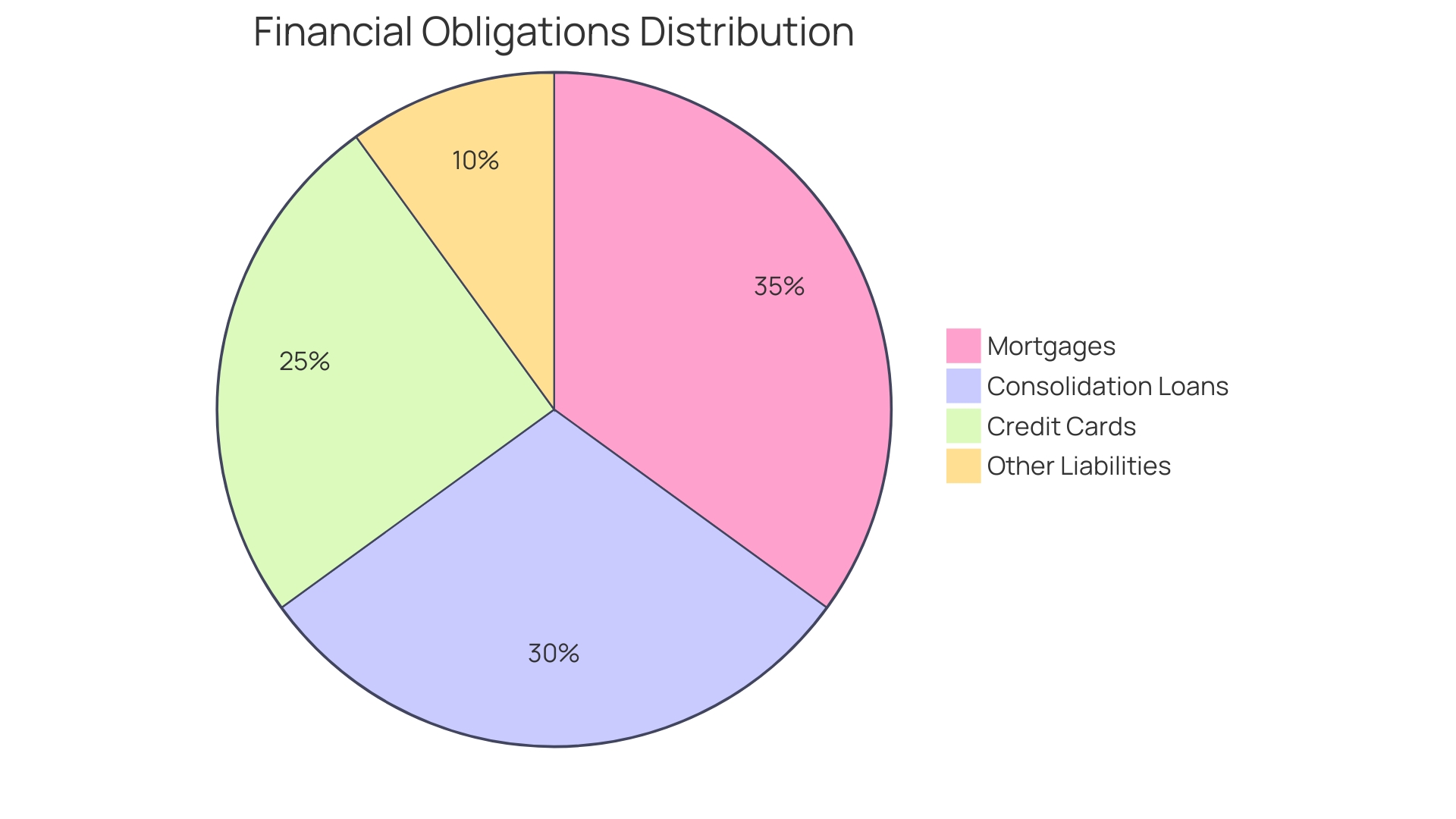
Investing for the Future
Aiming for stability and wealth accumulation through investing is crucial for fiscal wellness. Delving into the investment landscape, one must consider various assets, from equities to tangible real estate, and the critical role of retirement planning. The discourse on investment returns is ever-evolving, as evidenced by MIT professor Peter A. Diamond's analysis during the zenith of the dot-com bubble. This scrutiny cast doubt on the long-standing assumption of a 7% real stock return over an extended period. High stock valuations at the time hinted at diminished future returns, prompting a reevaluation of investment strategies.
The economic sector is not static, and the arrival of artificial intelligence is poised to revolutionize industries, including finance. This transformation echoes the sentiments of industry veterans like Stanley Druckenmiller, who has critiqued the government's spending amid economic shifts, suggesting a cautious approach to resource allocation.
Practical money management starts with a comprehensive audit of one's income and outgoings. Establishing a budget that accounts for debt repayment is crucial for maintaining fiscal health. Unanticipated expenses, which can interrupt even the most careful plans, emphasize the importance of an emergency fund—a safety net for life's unforeseen events.
In the midst of market reshuffles and technological disruptions, it is paramount to assess the net worth fluctuations across different demographics. The S&P 500, reflective of America's largest corporations, serves as a barometer for the nation's economic pulse, with its performance offering insights into broader market trends. As we navigate through periods of market volatility, a thorough comprehension of these economic indicators, combined with a proactive and knowledgeable investment approach, will lay the foundation for lasting monetary stability.
Financial Literacy and Education
Comprehending monetary concepts is essential for making sound decisions that lead to fiscal wellness. For instance, when contemplating the substantial life decision of purchasing versus leasing a home, a strong understanding of the monetary implications is crucial. Young adults, particularly those just starting their careers, often grapple with this decision. They must weigh the pros and cons, such as the long-term investment potential of buying a home against the flexibility and lower upfront costs of renting. The Primerica study emphasizes a disparity in money education, with numerous adults feeling ill-equipped to handle their finances efficiently, prompting a rise in literacy efforts.
The advantages of monetary literacy go beyond personal finance; organizations like JA Worldwide and Volvo Financial Services comprehend this and have invested greatly in economic education. With the rapid evolution of the economic landscape, exemplified by the rise of cryptocurrencies and blockchain technology, staying informed is more critical than ever. The recent World Economic Forum meeting in Riyadh emphasizes the global focus on economic diversification, which includes empowering individuals through monetary knowledge.
Moreover, the pandemic has underscored the need for robust emergency funds, challenging the traditional six-month savings benchmark. Planners in the finance sector now advocate for a more considerable safety net, a testament to the unpredictable nature of economic crises. In this context, grasping the intricacies of planning, including insurance and investment strategies, becomes even more pertinent.
The significance of technology in democratizing monetary education cannot be overemphasized. It enables access to information and tools that were once exclusive, thus facilitating inclusion. As the G20 and OECD have noted, leveraging technology is key to achieving universal inclusion. Therefore, embracing economic literacy is not just a personal benefit but a societal imperative, paving the way for a more resilient and informed community.
Insurance and Risk Management
Managing insurance and risk is a vital part of maintaining wellness. It's not just about having insurance policies in place; it's about a strategic approach to identifying and mitigating potential risks. With advancements in technology, particularly artificial intelligence (AI), the insurance sector is undergoing a transformation. A significant 77% of senior executives report adopting AI technologies, marking a 16 percentage point increase from the previous year. This tech-forward approach is critical in refining the process of underwriting, which is at the heart of insurance practices. Underwriters assess the risk associated with potential policyholders to set premiums and coverage terms, but with the rise of digital data, the industry is moving towards innovative and highly configurable services to improve the claims process.
The embrace of technology within the insurance industry is not a new trend. Since the 1960s, insurance companies have been integrating new technologies, transitioning from punch cards and mainframes to the latest tablets and mobile phones. This technological backbone is vital for the industry to keep pace with the evolving demands of risk assessment and management.
Moreover, the significance of comprehending risk profiles and business models of institutions has been emphasized in recent discussions among banking leaders. These elements are crucial for evaluating the stability and viability of these institutions. Catastrophe modeling is another area where technology plays a crucial role. These computerized processes, which simulate potential catastrophic events, have been evolving to incorporate various forms of data and analysis to model complex scenarios, including non-weather related risks like terrorism and cyber-attacks.
Given these advancements, it's evident that comprehensive risk management is more than a safeguard against unexpected burdens; it's a proactive and technology-driven strategy to ensure long-term stability and adaptability.
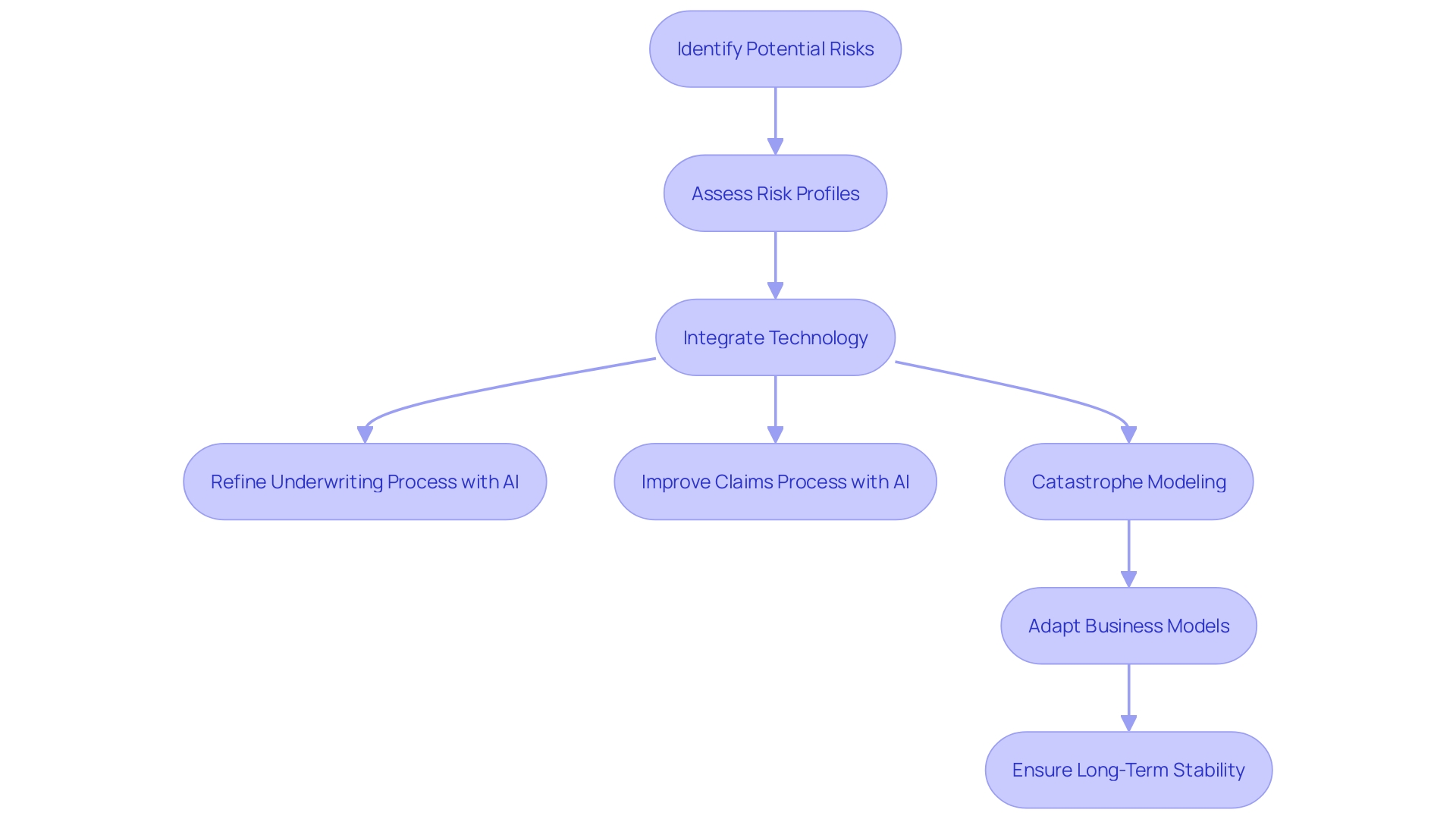
Retirement Planning
Planning for retirement is a multifaceted challenge that requires thoughtful strategy and economic foresight. It's not just about stashing away a percentage of your income into retirement accounts like 401(k)s or IRAs, but also about understanding the intricacies of investment returns, managing risks, and preparing for unforeseen expenses, such as healthcare costs.
-
Determine Your Budget: To create a robust retirement plan, start by calculating your anticipated monthly expenses. Assess the cost of living in your area, your housing costs, and other fixed expenses. From there, you'll be able to work out how much you need to save to afford your desired lifestyle during retirement.
-
Investment Return Expectations and Risks: While historical market returns can guide your expectations, it's important to remember that returns can vary significantly from year to year. For instance, the S&P 500's substantial positive return in 2021 was followed by a notable loss in 2022. Such fluctuations underscore the importance of a diversified investment portfolio and the need for a strategy that can adapt to changing market conditions.
The significance of timing: Initiating early with retirement funds is crucial. The compound interest you earn over an extended period can significantly enhance your retirement fund. On the other hand, postponing your plan to set aside money can compel you to make up for lost time in the future, potentially affecting your economic stability.
-
Consulting with Financial Advisors: Seeking professional advice can bring clarity to your retirement strategy. Experienced advisors can help you navigate complex decisions, such as rolling over a 401(k) into an IRA, and ensure that you're adhering to a plan that aligns with your goals and risk tolerance.
-
Long-term Care Considerations: With the median cost of a private room in a nursing home reaching over $100,000 annually, it's worth considering long-term care insurance as part of your retirement plan. This insurance can help cover the substantial costs associated with long-term care, protecting you from draining your retirement savings.
As you plan for a comfortable and secure retirement, remember to regularly review and adjust your monetary goals, especially when life events occur that could impact your economic situation. By adopting a proactive and knowledgeable approach, you can navigate the intricacies of retirement planning and position yourself for a future of monetary well-being.
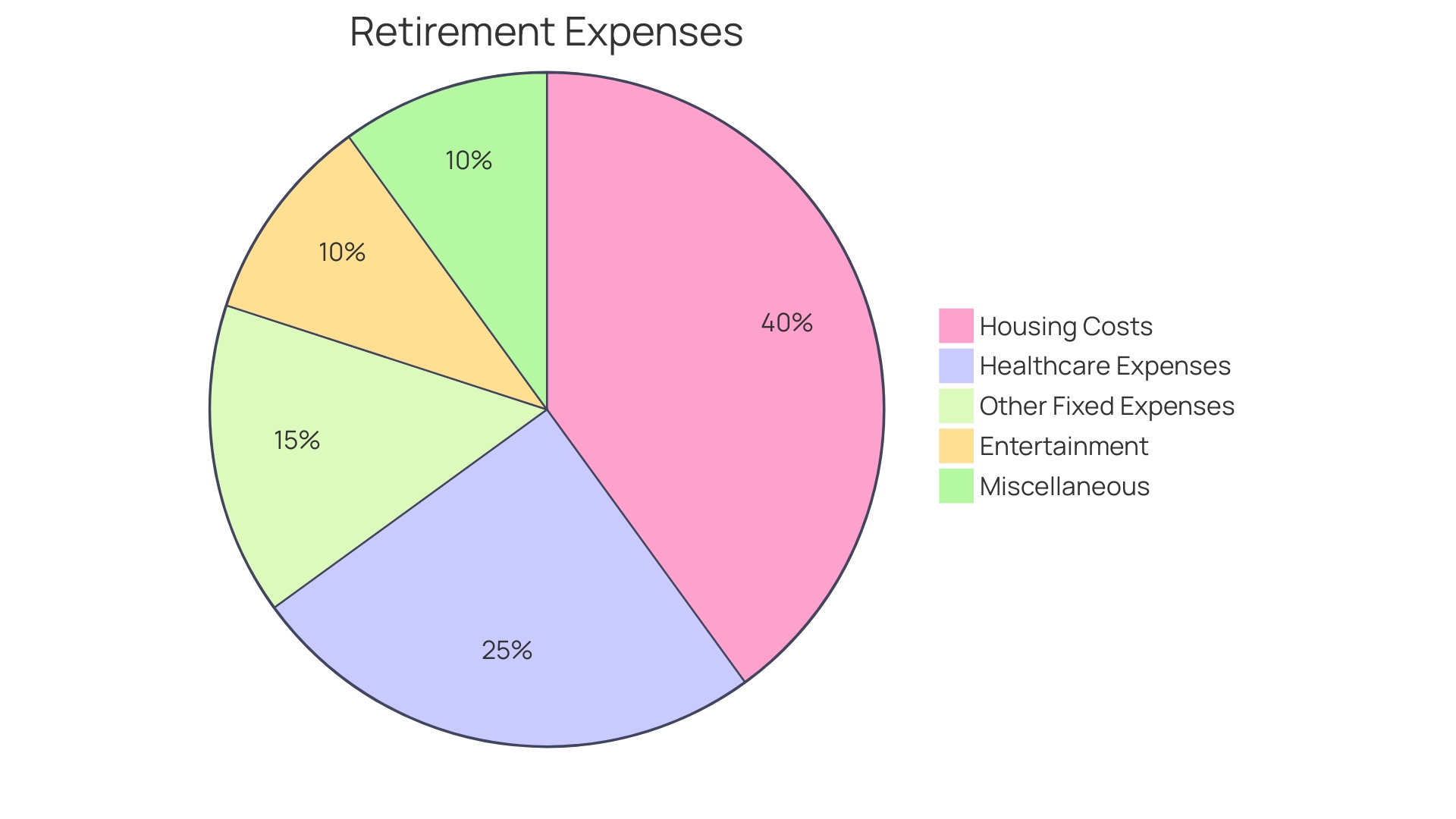
Estate Planning
As business owners and individuals with substantial assets navigate their monetary well-being, the emphasis on estate planning becomes paramount. Crafted to manage and distribute assets during times of incapacitation or after one's passing, this strategic planning is more than just drafting wills and establishing trusts; it also encompasses tax considerations to facilitate a seamless wealth transfer and preserve one's monetary legacy.
Having a last will and testament, or opting for an asset protection plan such as a Family Limited Partnership (FLP), provides a structured approach to ensuring your wealth reaches the intended beneficiaries. Effective estate planning, including the use of trusts, can create legal barriers that safeguard assets from potential creditors, legal action, and excessive taxation.
The digital era has added complexity to estate planning, with online assets like cryptocurrency holdings requiring special attention. For instance, bitcoin inheritance planning necessitates understanding the nuances between possession and title, and the importance of mechanisms like multisig wallets to ensure secure and intended transfer of digital wealth.
Recent shifts in monetary paradigms, highlighted by the pandemic's impact on emergency funds and the importance of liquidity, underscore the need for comprehensive estate planning to maintain monetary stability. Furthermore, the changing environment of small business funding, like vehicle grants, highlights the significance of readiness for both personal and business monetary health.
Ultimately, while educational resources provide a foundation, personalized legal advice is indispensable in estate planning to address unique individual circumstances and to navigate the complexities of asset distribution, both tangible and digital.
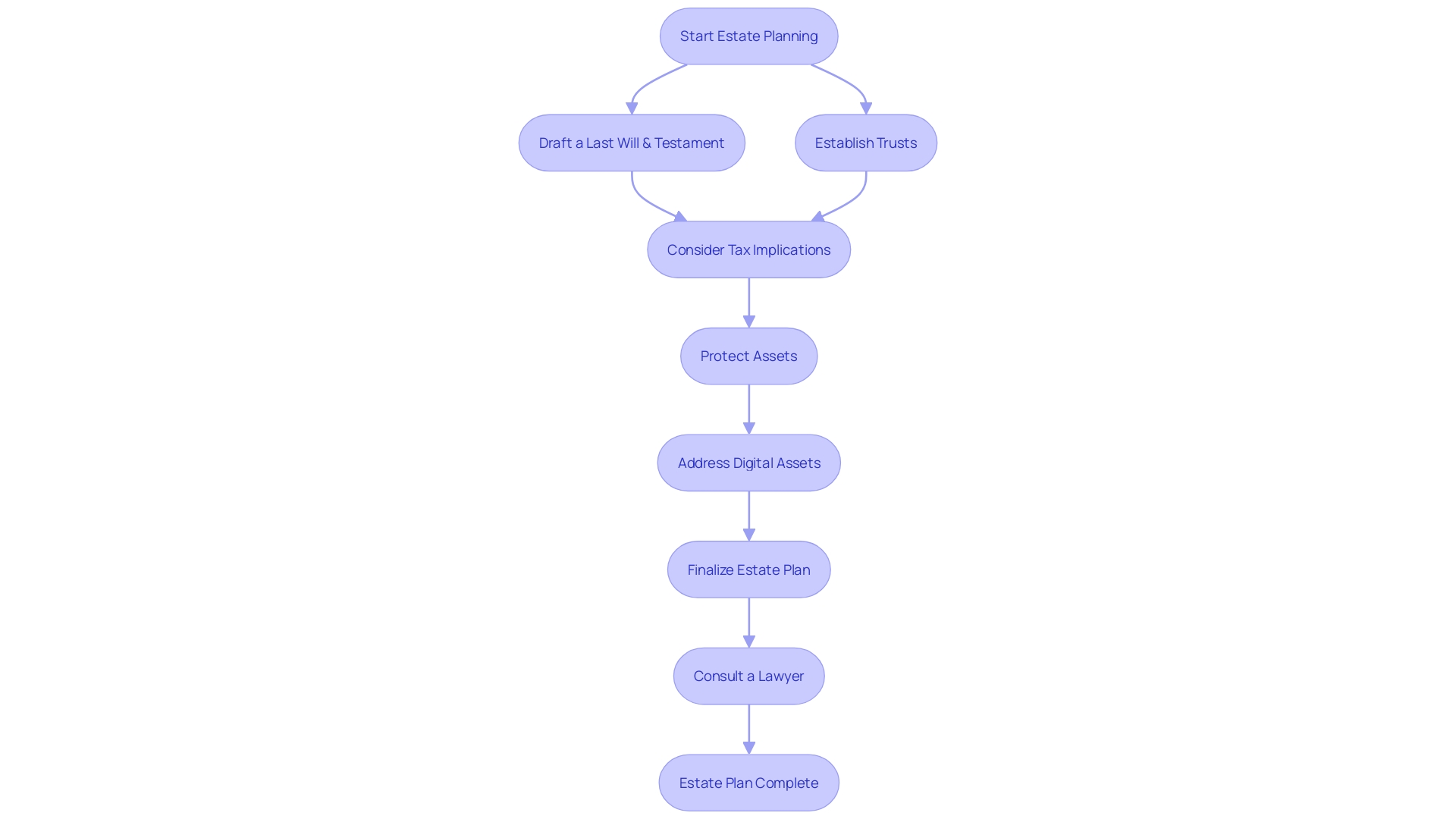
The Importance of Financial Wellness
Comprehending and sustaining fiscal health is not only about peace of mind; it is a strategic necessity for stability and growth. Attaining economic well-being empowers individuals with the resilience to navigate opportunities and unforeseen challenges. Companies that prioritize monetary well-being enjoy the advantages of stability and a competitive edge in the market.
Take the case of the Savannah-Chatham County Public School System (SCCPSS), which despite finite resources, has leveraged technology to safeguard the data of its staff and students. The proactive approach of Carl Eller, Senior Director of Information Security and Technology Management, embodies the principle that managing monetary and technical resources effectively is crucial for the continuous support of educational excellence.
In a broader context, statement analysis is key for any organization seeking operational efficiency and growth. By scrutinizing balance sheets, income statements, cash flow statements, and annual reports, businesses can gauge asset performance, identify potential liquidity issues, and get a clear picture of their equity distribution. This thorough examination is a foundation of economic health, forecasting future expansion and guaranteeing preparedness for both chances and challenges.
Moreover, the current economic landscape, marked by inflation and market volatility, underscores the importance of personal finance management. As per a Mercer survey, 72% of employees have experienced increased economic stress due to recent trends, with many reducing discretionary spending and dipping into savings. This environment necessitates a more comprehensive approach to economic well-being, where individuals optimize their skills for additional income streams and organizations adapt to safeguard employee financial health.
Education about money, accessibility, and the adoption of technology are vital to attaining monetary well-being. The World Economic Forum and OECD have emphasized the transformative power of digital tools in extending the reach of services, particularly for those historically excluded. Operation HOPE, the largest literacy organization in the U.S., champions technology-enabled tools as a means to empower individuals to take control of their future.
Considering these observations, it is evident that fiscal well-being is a crucial component for the welfare of individuals and the strategic triumph of organizations. By embracing technology, conducting thorough economic analyses, and fostering monetary education, entities can propel themselves toward a more secure and prosperous future.
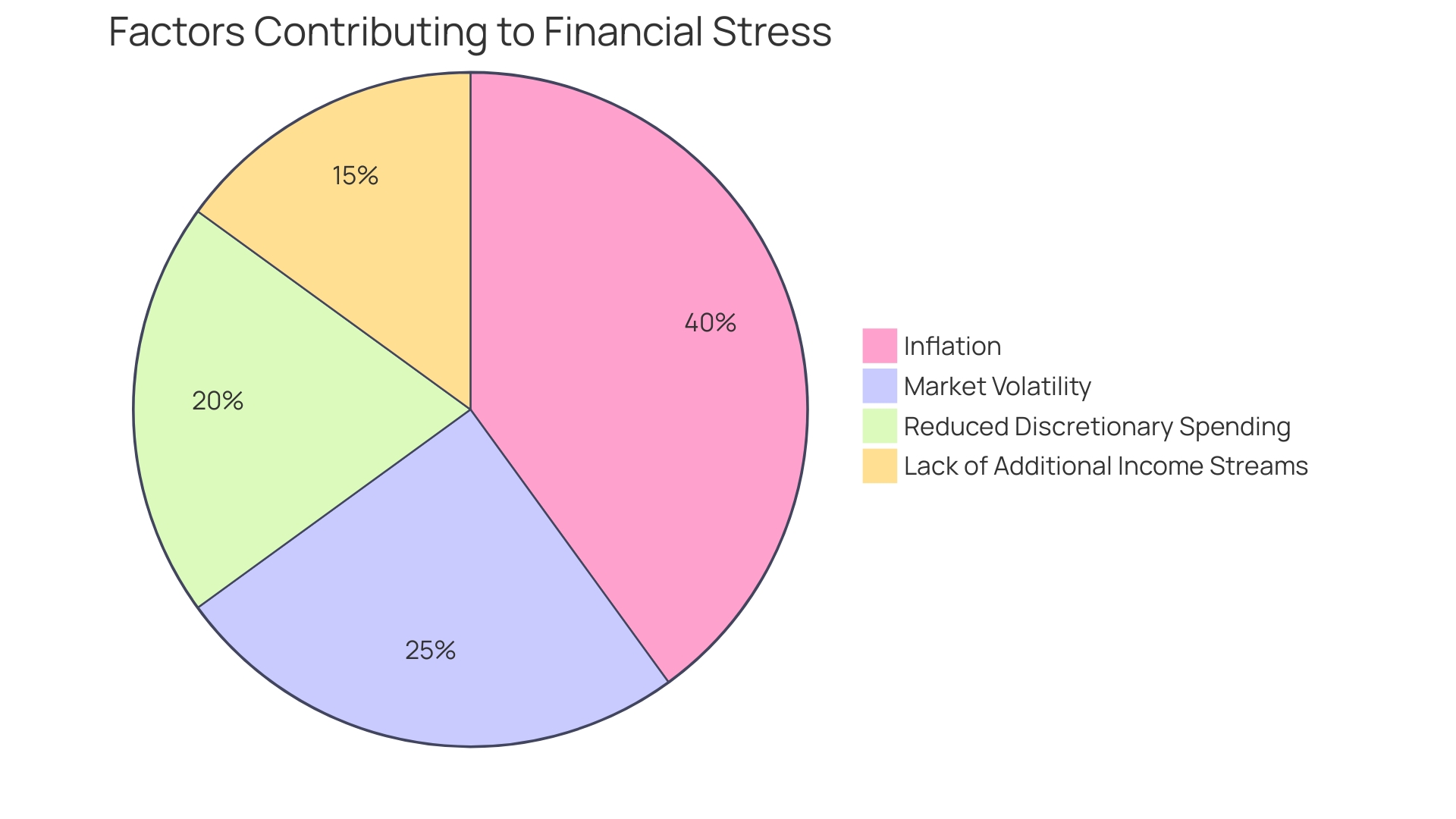
Benefits of Achieving Financial Wellness
Starting on the path towards economic well-being is a journey filled with significant benefits for both individuals and businesses. Take the inspiring story of Priyanka Prasad, a 32-year-old former lawyer from Bangalore, India. Having been raised in a financially prudent household, Priyanka embraced the value of saving for uncertain times. This foresight allowed her to gather a 'rainy day' fund, which she is currently using to pursue her passion as an indie hacker with a 1.5-year runway. Her story is a testament to the empowerment that comes with economic security, allowing individuals the freedom to chase their dreams without fiscal constraints.
Similarly, institutions like Commerce Bank integrate advanced monetary products with high-quality customer service, embodying the 'super community bank' model. This innovative approach has been crucial for the bank in navigating the digital revolution and the competitive pressure from fintechs, ensuring their enduring success over 150 years. Embracing such progressive strategies is crucial for any organization aiming to cultivate strong customer relationships and maintain relevancy in today's dynamic market landscape.
Contemporary retirees in the U.S. face the challenge of ensuring their funds sustain an ever-increasing life expectancy. It's recommended to prepare for at least 25 years post-retirement, factoring in personal health conditions and family history. Automatic contributions to employer-sponsored retirement plans, such as 401(k)s, are pivotal first steps in building a lasting safety net.
Diligent money management is not just a personal virtue but a corporate necessity. As Mitt Mehta of SENTA Partners highlights, a comprehensive business plan encompassing budgeting, forecasting, and record-keeping is the foundation of a startup's fiscal health. Furthermore, prominent employers are increasingly acknowledging the significance of workplace emergency savings accounts, providing features like automatic payroll deductions, principal protection, and FDIC insurance to cushion employees against shocks.
The incorporation of thorough economic analysis within companies is also gaining traction. For instance, a global consumer goods organization recently enhanced its finance teams' capabilities to deliver improved business insights and foster stronger internal partnerships. Education on economic fundamentals and the business model is becoming integral to enabling informed decision-making throughout an organization.
Ultimately, the holistic management of finances, whether personal or corporate, leads to greater stability, confidence, and the ability to adapt and thrive amidst economic fluctuations. It underscores the profound impact that sound financial wellness strategies can have, empowering both individuals and businesses to navigate their fiscal landscapes with resilience and foresight.
Conclusion
In conclusion, achieving financial wellness requires a holistic approach that balances saving and spending, managing day-to-day finances, and preparing for unexpected expenses. It involves setting and achieving financial goals to enhance overall satisfaction and well-being.
To attain financial wellness, individuals and organizations should focus on controlling day-to-day finances, building emergency funds, and managing debt effectively. Creating a budget, tracking expenses, and aligning spending with long-term objectives are key steps. Financial literacy and education play a vital role in making informed decisions and promoting long-term stability.
Investing for the future is crucial, with realistic savings and investment goals, understanding risks and returns, and regularly reviewing and adjusting strategies. Insurance and risk management are essential for mitigating financial burdens.
Retirement planning is crucial, involving careful budgeting, investment strategies, and considering long-term care needs. Estate planning is important for individuals with substantial assets, ensuring a smooth wealth transfer and preserving financial legacies.
Recognizing the importance of financial wellness benefits both individuals and organizations. It provides stability, resilience, and a competitive edge in the market. By taking a proactive and strategic approach to financial management, individuals and organizations can establish a solid foundation for lasting financial wellness.
With the right tools, knowledge, and mindset, financial wellness can be achieved, leading to stability, growth, and peace of mind. Regularly assessing and adapting financial strategies in response to economic shifts and unexpected events is crucial. Prioritizing financial wellness allows individuals to enjoy control and satisfaction while helping organizations thrive in a dynamic market environment.
Take control of your financial future. Start assessing and adapting your financial strategies today!




